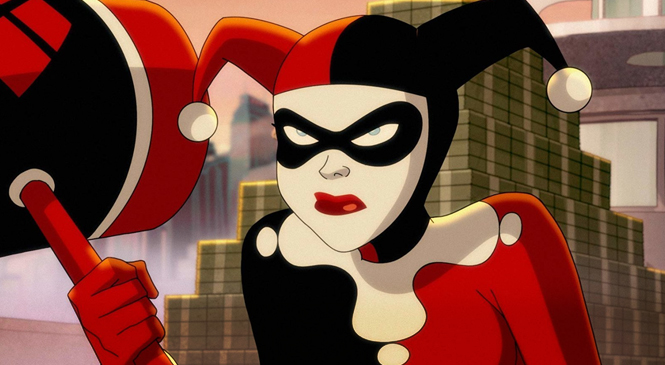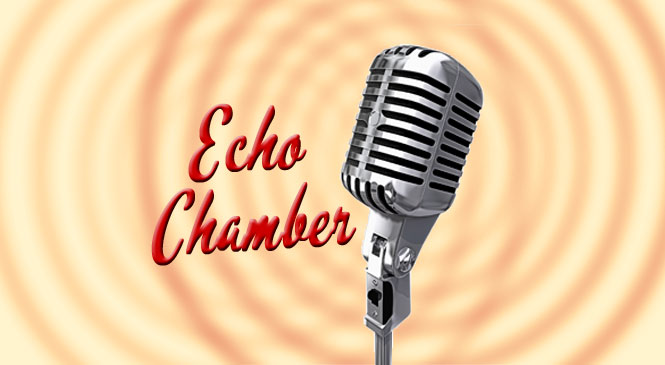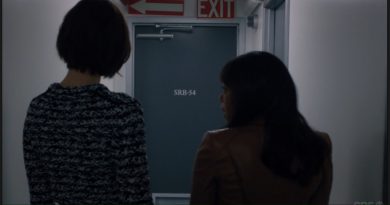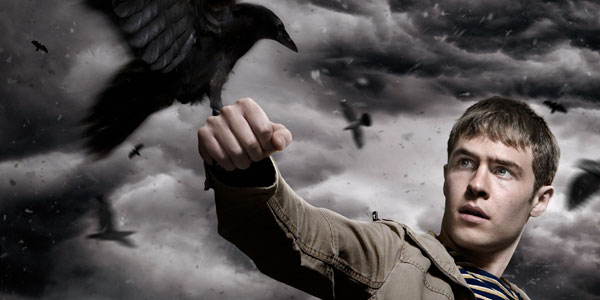DC Universe’s HARLEY QUINN: NOT for Kids but Oh So Funny

It’s no secret that the latest animated series from DC is not for kids, but whooooo boy, is Harley Quinn so VERY not for kids.
The dialogue is very R-rated, extremely bloody violence is played for laughs, and sex is very much a topic of discussion.
It is also extremely funny, if you are someone who has – like me – stared directly at some of the comic book heroes and villains a bit too closely and recognized that as cool and entertaining as they are, there is some serious silliness there on display.
I mean, c’mon. There’s a guy dressed as a bat. Because he thinks criminals fear bats. In a city where there seems to be a revolving door on a high security prison for the criminally insane… a city that in the real world every normal person would have moved out of decades ago, because there’s a unnervingly high percentage of “death by supervillain” in the city’s demographics.
There are all kinds of things that don’t survive basic logic tests in entertainment, that we all happily ignore because we love the writing or the characters or the actors who play the parts. I’ve been singing the praises of the movie Us, even if one of the central plot points doesn’t make a lick of sense, and everyone knows – or should – that CSI labs take weeks or months to get results that take 30 minutes on TV. Court cases take months to work their way through the system, and while we’re supposed to be on the X-men‘s side, the mutants in the comics would be absolutely terrifying in the real world. And no one on television can afford the apartments they live in on a sitcom income. Can you even imagine what the utility bills for STAR LABS has to be on The Flash?
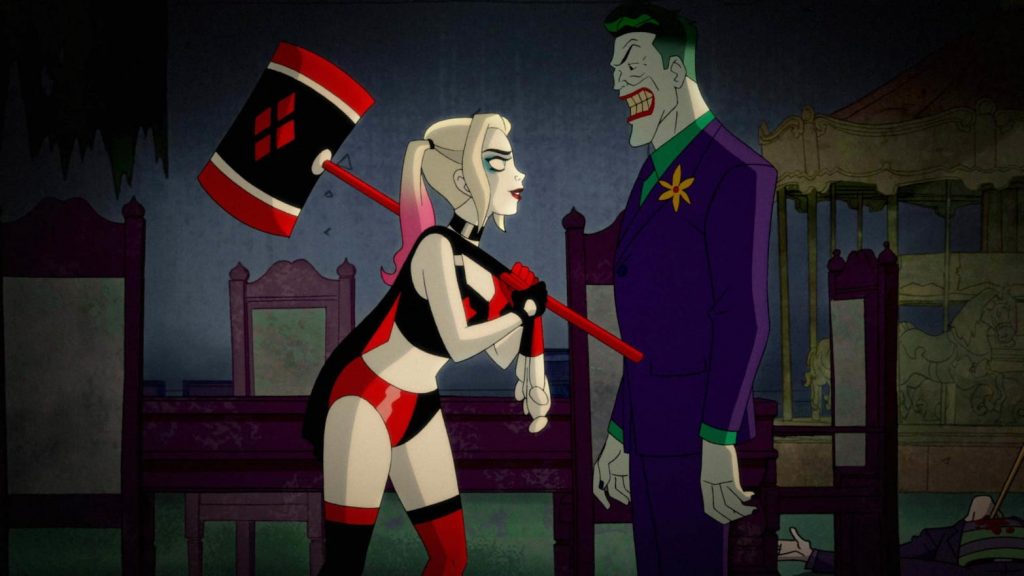
First appearing in Batman: The Animated Series as the girlfriend of the Joker – who is, of course, a mass-murderer in pretty much every version of the character in modern media – Harley Quinn quickly became a fan favorite, moving to the comics and the film worlds. Along the way she became something of an antihero more than an actual villain, and her writers have given fans a surprisingly rich character who has moved out of the shadow of the Joker, in large part because quite a lot of fans stared directly at their relationship and said, “that… is NOT healthy”.
In the comics there have been several serious takes on what is – under pretty much any definition – an abusive relationship, and they are definitely worth looking into. (I recommend Gotham City Sirens, Batman: White Knight and of course her own self-titled series.) Most of the modern versions of Harley have cut ties with the Joker, because while he’s an insane murderer, she’s… well, she’s a somewhat less insane murderer, on a less-than-direct redemption arc.
That’s one of those do-not-stare-directly-at-it things, kids.
Here though, the take is all-villain, if not actually evil. In fact, over the first three episodes of the series, most of Harley Quinn‘s supervillains don’t come across as evil as much as somewhat ridiculous and self-delusional about the world they inhabit. The Joker might still be a crazy murdering clown, but he’s obsessed with how it looks to the larger villain community that Harley dumped him. Here Kite-Man, KITE-MAN, thinks he’s a suave ladies-man, something Poison Ivy has to disabuse him of to her great annoyance. Here Dr. Psycho’s biggest crime is not that he’s got an evil scheme that Wonder Woman stops him from completing, but that he uses a certain word to insult her that a show that features copious amounts of R-rated swearing still manages to bleep out.
Here, the villains have a table at the Penguin’s nephew’s Bar Mitzvah. It goes about as well as you might expect.
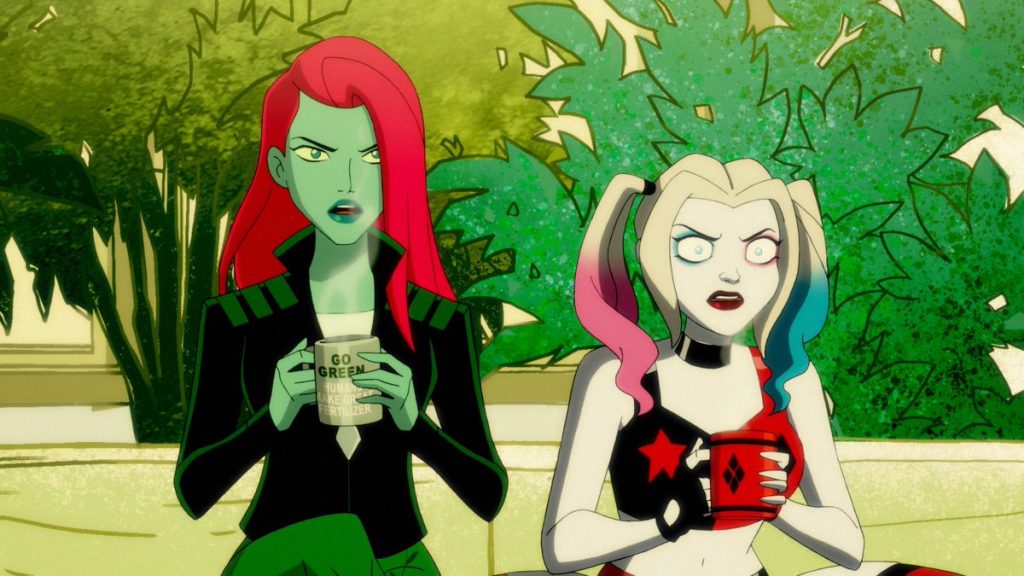
Harley Quinn happily dives into all this ridiculousness, ramps it up, and kicks the filters to the curb. It also shows a surprising amount of heart, with Harley finding herself a support group of villains who actually care about her, most notably – as in the comics – Poison Ivy. While Ivy and Harley have something of a romantic relationship in the comics, here Ivy is Harley’s somewhat reluctant ally in her schemes, tagging along to play semi-supportive friend, even if she thinks the plan is a really, really bad idea. And Harley’s plans are… generally pretty bad ideas.
I’ve been very spoiler-lite here, because so much of what makes Harley Quinn fun is the dialogue, and aside from reproducing huge chunks of it, you’re much better served just watching it. Of course that dialogue only really works with great voice talent, and the casting is just about perfect. Kaley Cuoco gives us just enough of Arleen Sorkin’s classic interpretation of the character while making Harley her own, and Alan Tudyk wisely does his own version of the Joker without trying to recreate Mark Hamill’s iconic take. Lake Bell brings a wonderful weariness and sarcasm to Poison Ivy, and Dietrich Bader’s Batman is perfectly grim and serious. Well, sort of. Other notable voices include Chris Meloni’s unraveling Commissioner Gordon and Wanda Sykes’ cynical and more-than-somewhat-bitter Queen of Fables. Add in J. B. Smoove, Tony Hale, Jason Alexander, Giancarlo Esposito and a dozen more or so fantastic voices, and you have a cast clearly enjoying themselves by not taking themselves seriously.
Of course as an animated show, the character design and style is very important. Harley Quinn takes its primary visual aesthetic from the Batman: The Animated Series school, but filters it through the more recent character designs from the comics and DC’s animated films. Harley herself starts with the classic Paul Dini/Bruce Timm harlequin costume and then starts wearing a combination of the versions Margot Robbie wore in Suicide Squad and the character sports in the comics. Here’s that’s presented as a way of breaking free from the Joker’s influence, which honestly works a lot better than some of the comics-based explanations for the change.
In the end, whether you enjoy this show or not will be what you, personally, are comfortable with. Harley Quinn is a show that is not and will be not to everyone’s tastes, but that’s OK. If you want to laugh at the villains and the heroes, don’t mind a lot of swearing and a very adult nature, give it a shot. If not, well there’s a lot of great DC animated stuff out there for you, too. I like all of it, and I laughed a lot. If you are willing to play in a world where the inherent silliness of some of the best-loved tropes of the comics are treated as the way things actually are, you might just end up with Harley Quinn, a demented, warped, hilarious and surprisingly sweet animated series about a woman trying to get her life back on track with some help from her friends.
That is, again, not for kids.
![]()

